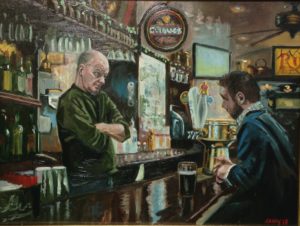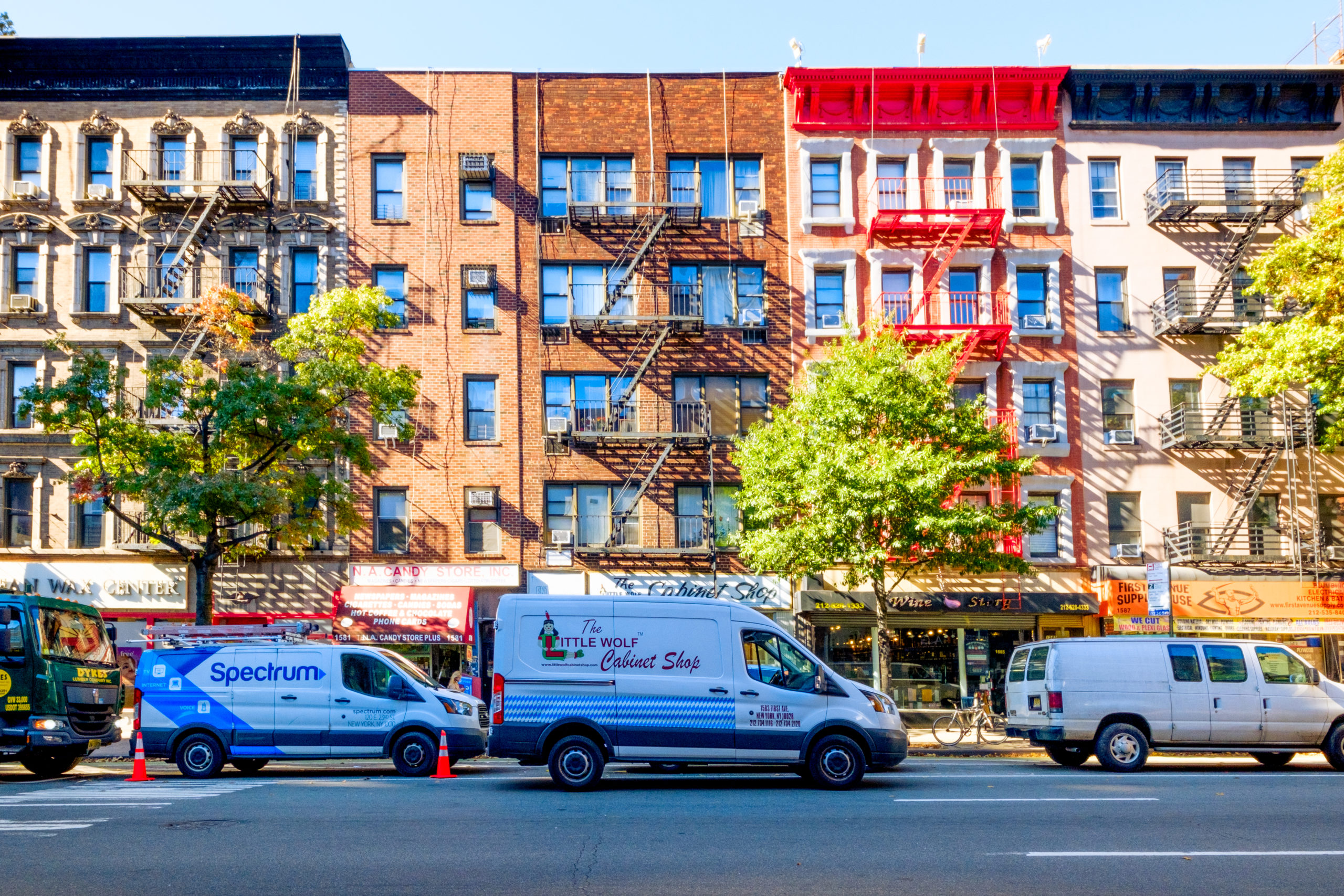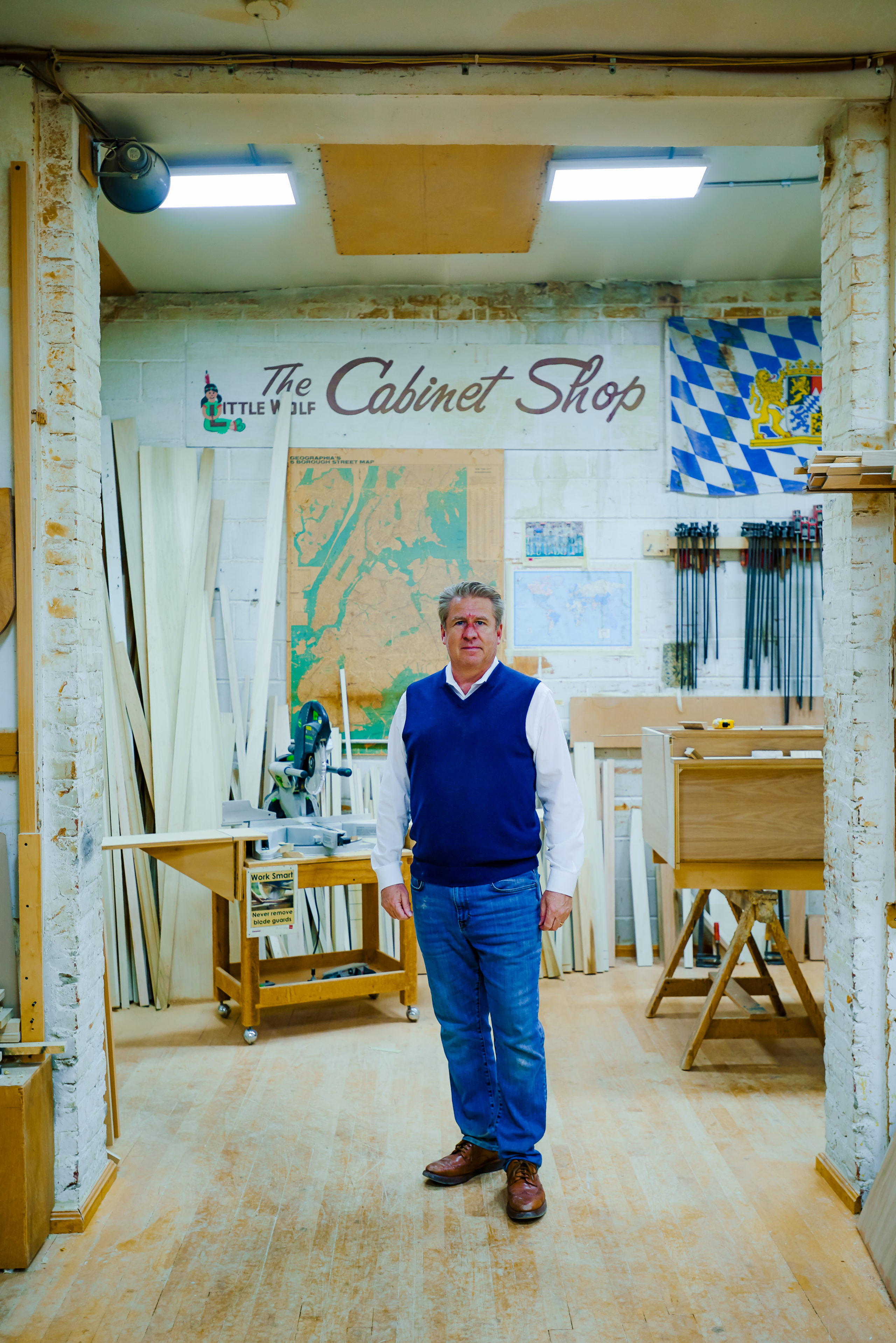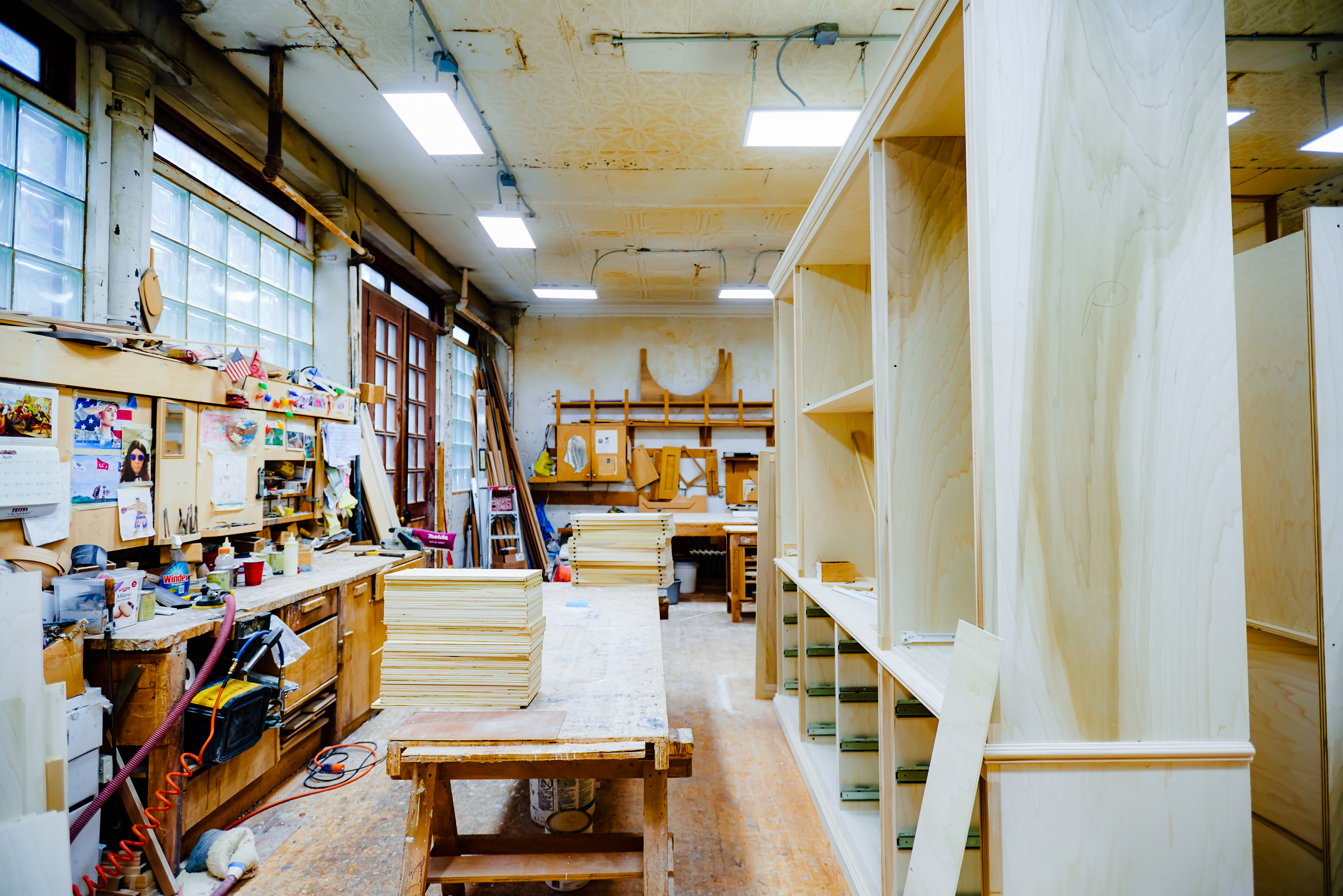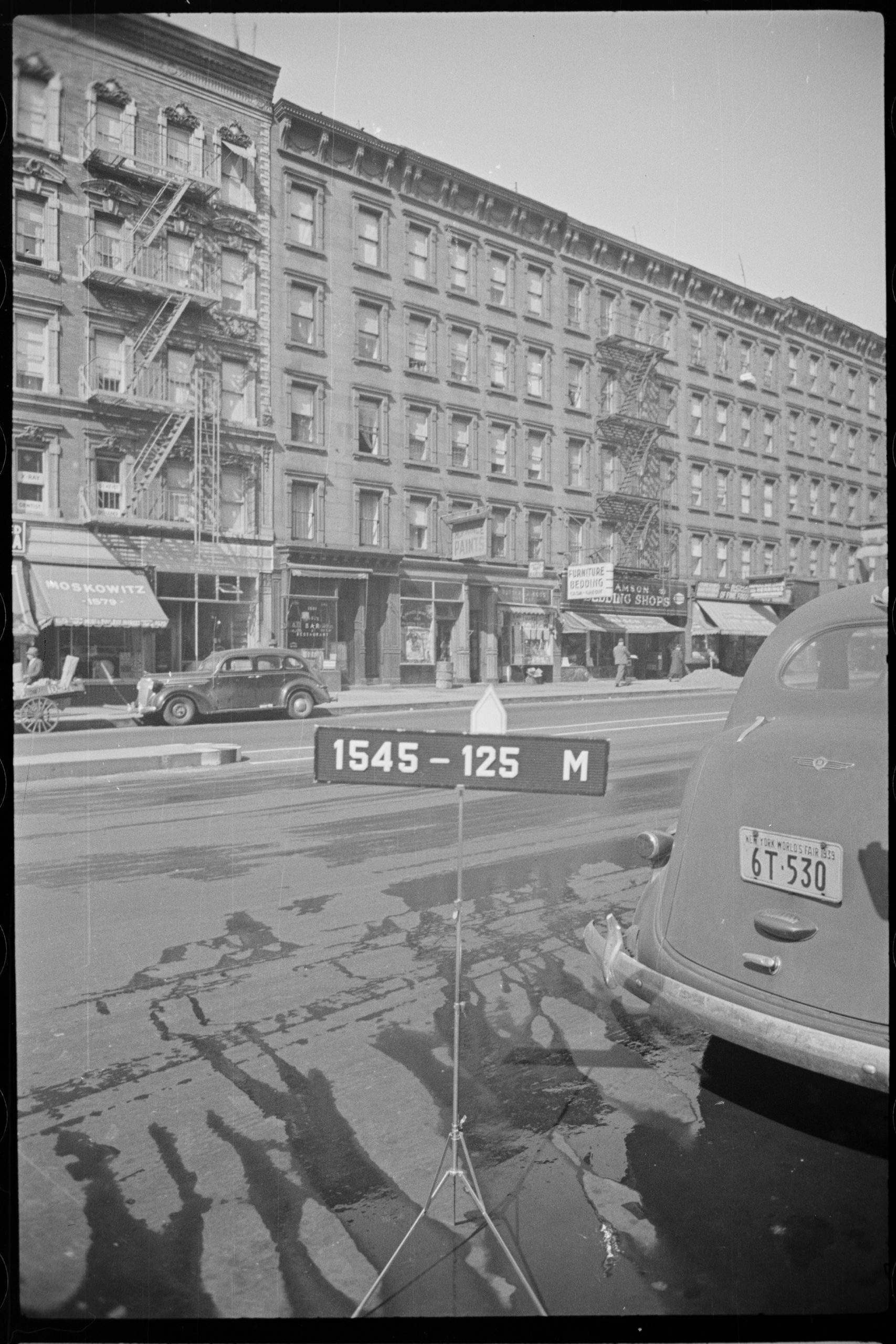Little Wolf Cabinet Shop 1583 First Avenue 212-734-2120 Established 1956
NOW
John Wolf was told from an early age that the business is called “Little Wolf'' after friends of John’s father said, “Here comes another Little Wolf,” when his mother was pregnant with him. In turn, John always knew that he would be the one to take over the family business.
John worked with his dad for years and today is a seventh generation woodworker. His family’s business began in the 1800s near Munich, Germany, and remained in Europe until John’s father emigrated to the United States in 1956 — with a set of carpentry knives. John vividly remembers coming into work with his father as a child and being delegated the glamorous jobs of sweeping, and cleaning the toilet.
With such a substantial amount of history in the neighborhood and the city at large, Little Wolf has become a household name, with multiple generations passing through John’s doors. Families value the shop’s good policies and the care put into each piece, and the fact that nothing at Little Wolf Cabinet Shop is ever created twice. John feels very strongly about family-owned businesses, saying, “You can’t buy anything with real value if it doesn’t come from a family. A family really cares.”
THEN
This almost unrecognizable small apartment building was developed in 1886 by Moore & McLaughlin as part of a row of 8, 5-story brownstone tenements. Looking at the neighboring building to the north, #1585, illustrates what this building and the rest of the block would have looked like upon construction and for much of the 20th century. These avenue buildings were constructed with storefronts, now altered at #1583 along with the cornice removed, window openings altered, and new brick facade. The entire row was designed by the prolific firm Thom & Wilson, having designed hundreds of rowhouses, apartment and tenement buildings, and civic structures through the city. Two of their most prominent works were the 1894 Manhattan Criminal Courts, demolished in 1939, and the Harlem Courthouse which still stands at 170 East 121st Street. Many businesses have operated from the first floor of 1583 First Avenue, a saloon and later a deli at the end of the 19th century, a paint store in the 1930s, and a Hungarian restaurant called Pesti Pici Zsuzsi in the 1950s and 60s.


